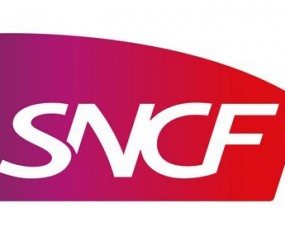
The 2017 annual results of SNCF Mobilités Group were significantly stronger than in the prior years, with the improvement showing in most of its P&L, cash flows, and returns metrics.
Group revenues rose 4.3% to €31.8bn, with gross profit up 27.9% to €2.7bn and operating income surging 55.9% to €1.3bn. There emerged some accounting and corporate adjustments, but regardless of some yearly changes, gross profit margin, operating income margin and return on capital employed stood at 8.7%, 4.2% and 7.9% against 7.1%, 2.9%, and 5.2%, respectively, in 2016.
The group consolidates SNCF Transilien, TER and Intercités, with sales of €8bn; Voyages SNCF, which turned over €7.3bn; Keolis, with over €5.2bn of revenues; and the smaller Gares & Connexions unit.
However, of great interest was the performance of its largest unit, SNCF Logistics, where Geodis, its main revenue driver, grew organically but has also been looking for sizeable acquisitions as it ranks just outside the top 10 by revenue in the freight forwarding field, according to our 2016 data.
In 2017, SNCF Logistics included four operating segments, which contributed to about one-third (€10.2bn) of group revenues: alongside Geodis, its reporting businesses were rail freight and multimodal transport (TFMM), Ermewa and STVA. As part of a portfolio rationalisation, STVA (€268m of sales, €1m of operating profit, €4m of investment in 2017) was sold in the second half of the year.
Geodis was responsible for about 80% of SNCF Logistics revenues, turning over almost €8.1bn, with gross profit of €271m and current operating profit of €201m (once the contribution of affiliates was included), which implied an operating margin of 2.8%.
Geodis invested €125m to grow sales by €243m, up 3.1% on a comparable, annual basis, while all business lines posted growth, except for the supply chain optimisation unit, “following a change to the IBM contract,” the group said. Meanwhile, freight forwarding activities “grew substantially” thanks to rising volumes, and contract logistics recorded a positive performance due to contract wins in France and internationally.
TFMM grew by €54m (3.6%) annually; “excluding the counter-effect of the 2016 strikes it is steady, with a decrease for Fret SNCF (mainly for cereals transport), stability for other rail transport operators, and growth for Multimodal Transport (combined),” it noted, adding that the revenues generated by Ermewa and STVA rose by €3m (+1.1%) and €12m (+4.7%), respectively.
Notably, Geodis recorded several significant wins.
It strengthened its partnership with Lego by signing two new contracts, “the first involving the maritime transport of virtually all the toy manufacturer’s flows and the second concerning the Danish company’s e-commerce logistics in North America.”
On top of that, Geodis and Ford signed a three-year contract for the transportation of spare parts between warehouses in Germany (Cologne and Dormagen) and Greece (Athens). Elsewhere in South Korea, Geodis said it would manage logistics for a BMW auto parts distribution hub, which the German manufacturer “hopes (…) will become the main Asia-Pacific platform for its spare parts.”
Moreover, it renewed a contract with Prénatal in the Netherlands for three and a half years, which now includes e-commerce logistics in Almere (Netherlands). It added that it “has been operating Kenzo’s global logistics from France since March.”
“Through this five-year partnership, Kenzo will be able take advantage of the specialist retail fashion expertise of Geodis, which is responsible for the reception, storage and preparation of the fashion brand’s products. Geodis is also supporting Kenzo in the development of its e-commerce sales channel in addition to the management of raw materials, quality control and product compliance.”
The 2018 outlook suggests improvement in the rate at which profitable growth is achieved, particularly in freight forwarding, as well as developments in key nations and countries (US, Germany, Benelux, Asia) and higher productivity.
The group maintains financial flexibility. In early 2017, it issued a 12-year €1bn fixed-rate bond swapped at floating rates for half of the amount, with both the bond and swap maturing on February 2, 2029. Furthermore, it said it had sold a “swaption to revert to a fixed rate in the amount of €250m with a maturity date of February 26, 2018. A second tranche of €300m backed by a floating-rate swap was issued on May 31, 2017.”
Source: Transport Intelligence, March 20, 2018
Author: Alessandro Pasetti